11 excellent Linux-friendly single board PCs with open specs
The price of all models below $ 200
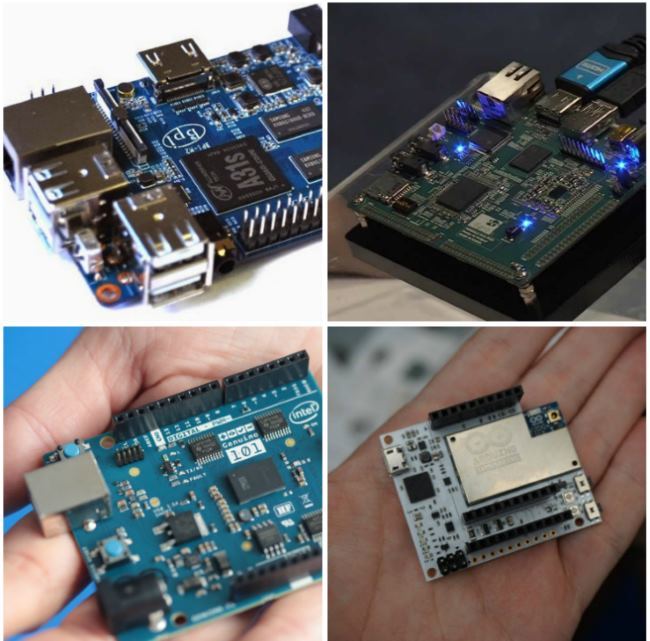
On the site HackerBoards.com for several years, a catalog of single-board computers . Now 81 single models are represented there. I chose 11 of them that meet the following criteria: the cost of the board must be below $ 200, its software must be open, (Linux or Android). Boards must be supplied with an extended specification, including a detailed scheme. Each board should have an active community and technical support for individual developers. The ideal fee for the developer can be called such a system, which is often mentioned in forums, other resources devoted to the development in the field of electronics.
86Duino Zero
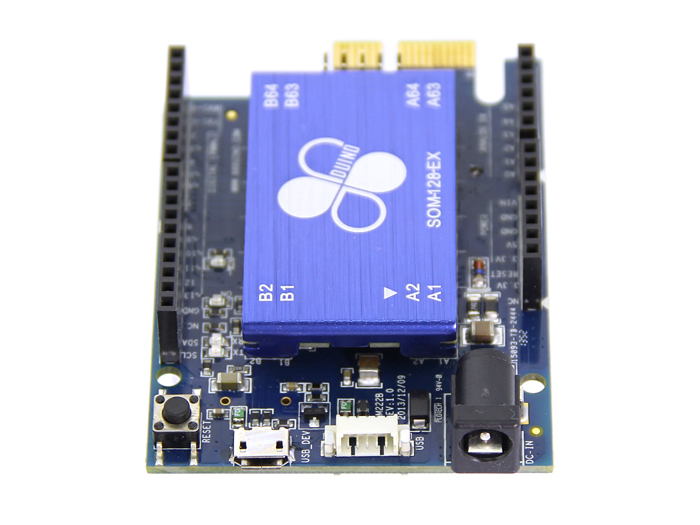
This is an open source Arduino-compatible platform based on the 32-bit x86 Vortex86EX SoC processor. It is compatible with Windows operating systems, Linux, 32-bit RTOS. The board is equipped with a PCIE bus, DDR3, ROM controller, xISA, I2C, SPI, IPC, Fast Ethernet, FIFO UART, USB2.0 and SD / SATA controller. The $ 69 model is very similar, but there is already support for HD audio and more I / O extensions. There is also a version of EduCake mini-PC.
A20-OlinuXino-Lime

The mini PC is a fairly compact single-board Linux computer with an open hardware platform and a very good set of peripheral interfaces. 84 x 60mm version is equipped with SATA interface, which is quite rare in the boards of this type. There are microSD, Ethernet, HDMI and three USB ports. You can connect the LCD-display, there is support for batteries and 160 GPIO.
Andromeda Box Edge
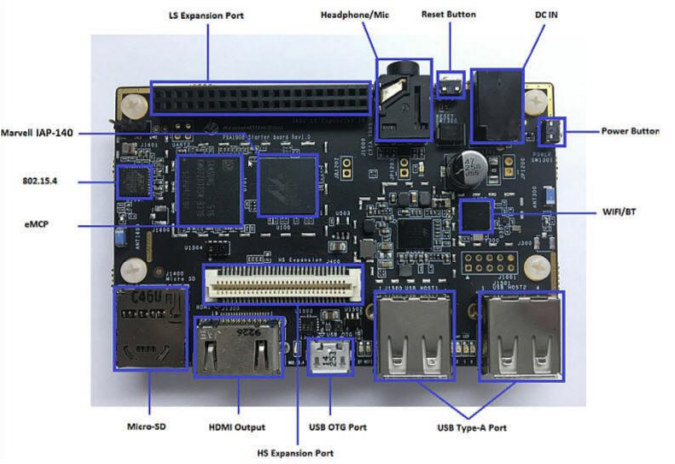
This miniature PC runs Brillo OS based on Android. The board has a fairly large community. There is a complete system specification, schemas, documentation, distribution of Brillo. The system supports the Google Weave and Thread network standards. The board includes WiFi, Bluetooth, three USB ports, an HDMI port and microSD.
Arduino Industrial 101
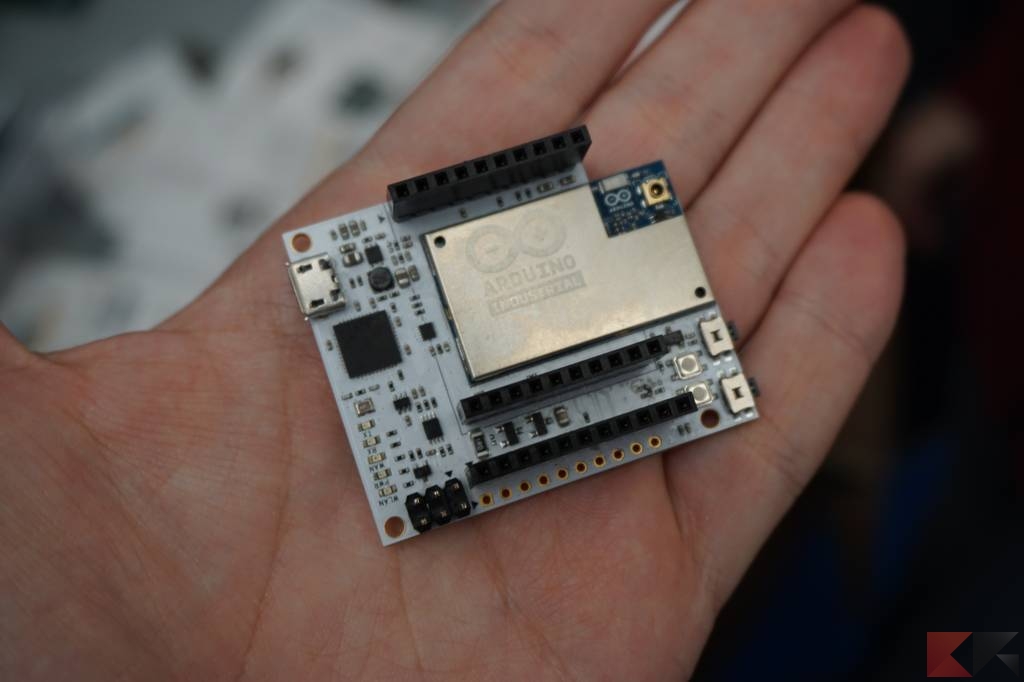
The board is made in the form factor "sandwich" and is similar to Arduino Yun. Inside is a microcontroller, a Qualcomm Atheros AR9331 MIPS processor with a Linino operating system and an IEEE 802.11b / g / n 1x1 2.4 GHz WiFi module. The system is powered via mini-USB. There is a LED.
Arduino Yún Mini
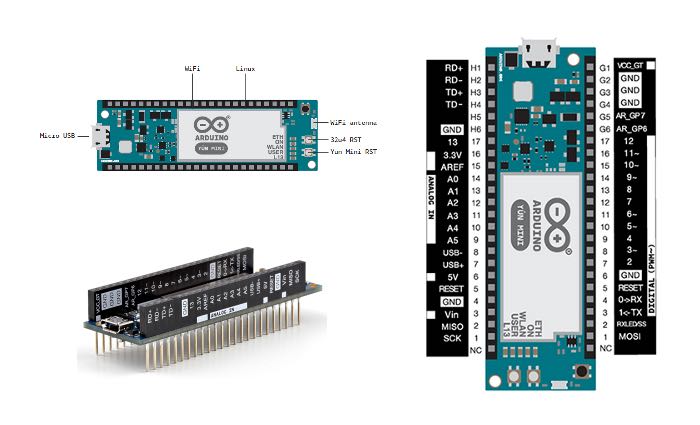
The board is a smaller version of the original Yún. The system is based on OpenWrt (Linino), with a Qualcomm's 400MHz AR9331 processor. Chip - Atmel Atmega32U4. The board is equipped with Ethernet, USB and microSD.
Arduino tian
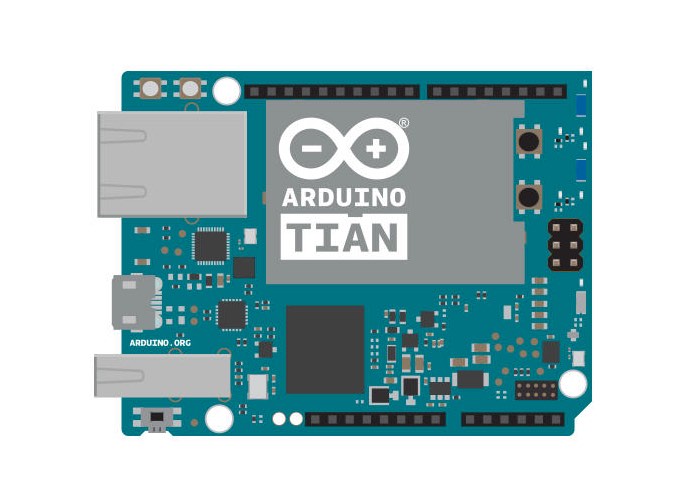
Compared with the previous two boards, this one is more productive. It works with the fast Atheros AR9432 WiFi SoC. There is support for Bluetooth EDR / BLE 4.0a. Other modules include a micro USB port, 20 DIO pins, 12x PWMs, and 6 analog pins.
Arndale octa
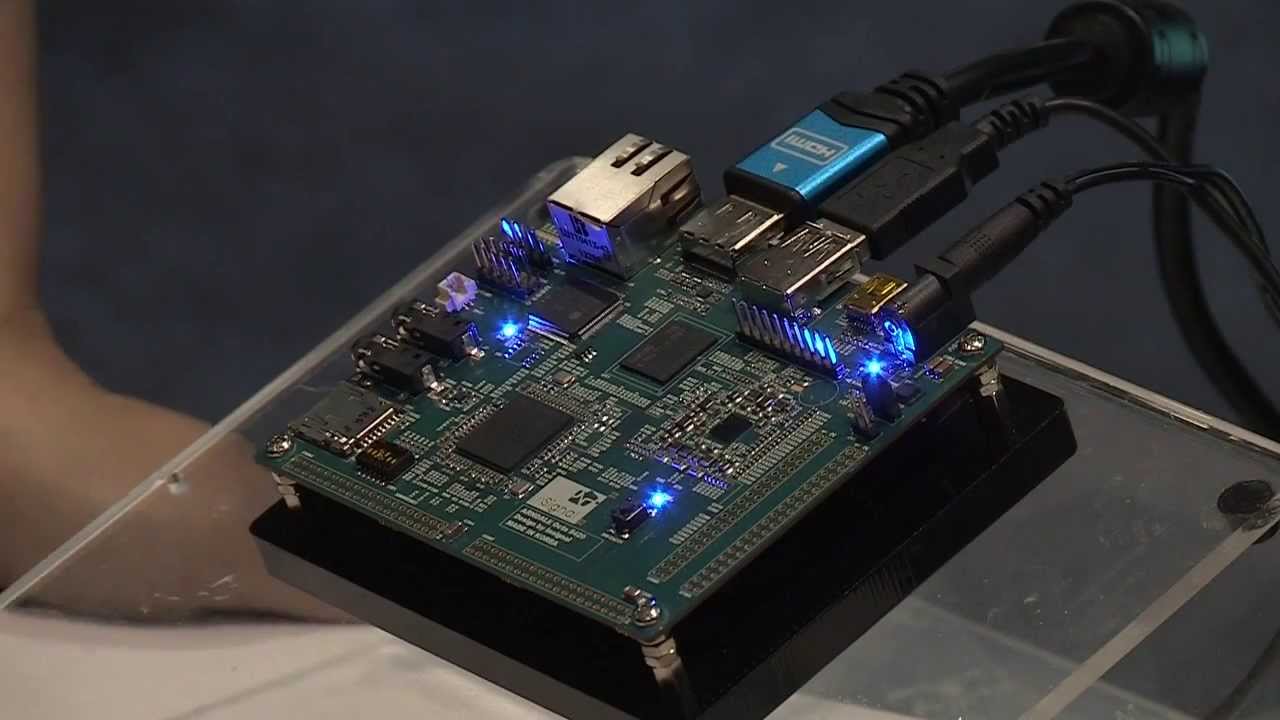
One of the most expensive cards in the compilation. It is based on Samsung's Exynos 5420 SoC, there are ports HDMI, eDP, and MIPI DSI, plus USB ports. The board supports MIPI-CSI camera, there is an optional wireless communication module. There is an even more productive fee, the ArndaleBoard-K, although it costs already $ 259.
Banana Pi M2
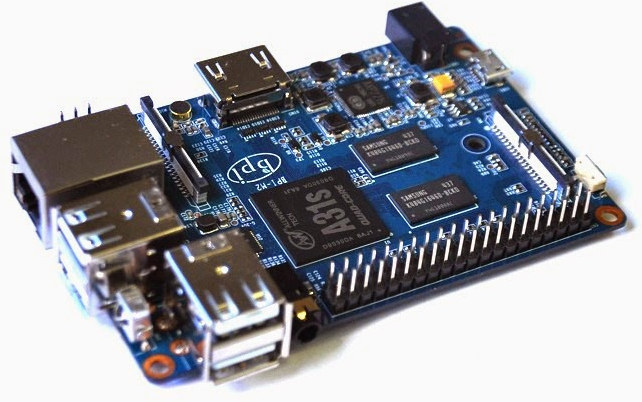
In 2014, the Banana Pi project was divided into SinoVoip and LeMaker. As with most other projects with Allwinner, open-source support is somewhat curtailed. The dual-core Banana Pi is a clone of the RPi Model B, while the Banana Pi M2 is an analogue of the Model B + with a 40-pin connector. The board is equipped with GBE, WiFi, five USB ports and a number of interfaces for connecting a display or camera.
BeagleBone Black, Rev C

This Debian-compatible board appeared a long time ago. It is intended mainly for industry. It does not work well for working with media content. Nevertheless, the board is quite popular, and last year several clones appeared at once. Some projects even exhibited at Indiegogo.
BeagleBone Green
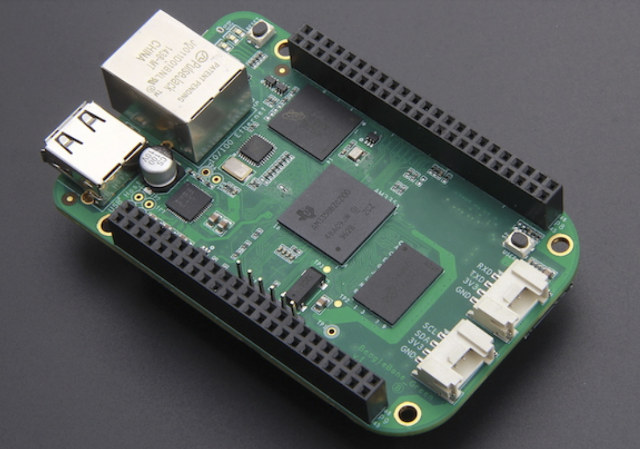
The board is positioned by the developer as a mini-PC for the Internet of things. Almost immediately after the appearance, it became popular, and now it has acquired a large community. BeagleBone Green (BBG) - based on the classic open source BeagleBone Black (BBB) platform, two Grove connectors have been added to it. Unlike the BBB, the BBG platform does not have an HDMI port, the USB host connector has been moved, and the USB client connector has been updated to Micro USB. BBB software is fully compatible with BBG.
Bubblegum-96
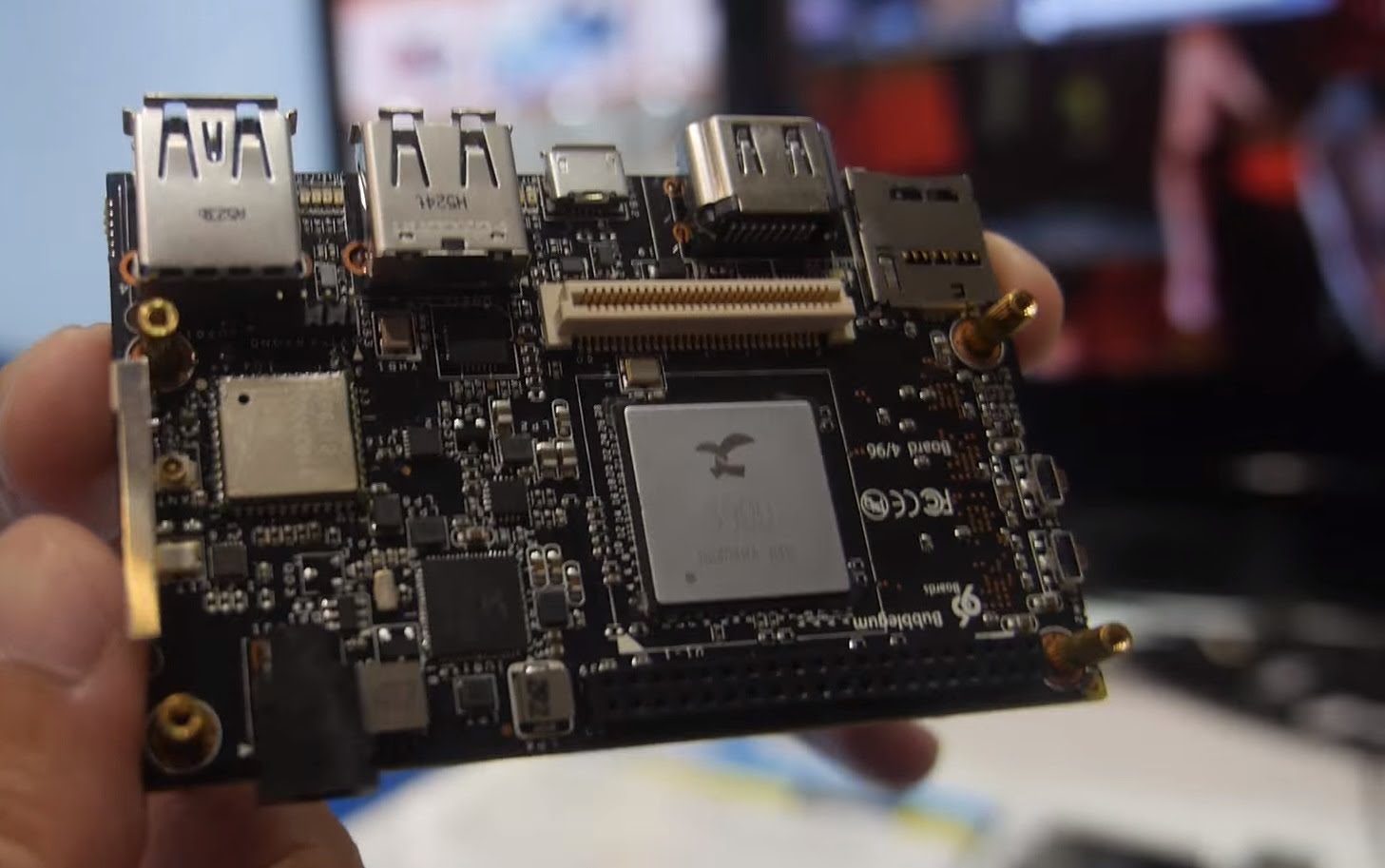
The board is based on a more prototype ActDuino. Linaro 96Boards CE specifications are used here. Unfortunately, the DragonBoard GPS chip is not here, but there is a fast SoC and 2 GB of RAM. The PowerVR G6230 GPU is also quite powerful, so this board can also be used to work with media. Inside there is an HDMI port, a microSD slot, a micro USB port and two USB ports, one of which is USB 3.0. WiFi and Bluetooth are also available.

On the site HackerBoards.com for several years, a catalog of single-board computers . Now 81 single models are represented there. I chose 11 of them that meet the following criteria: the cost of the board must be below $ 200, its software must be open, (Linux or Android). Boards must be supplied with an extended specification, including a detailed scheme. Each board should have an active community and technical support for individual developers. The ideal fee for the developer can be called such a system, which is often mentioned in forums, other resources devoted to the development in the field of electronics.
86Duino Zero

- Company / Resource - DM & P, 86Duino.com
- Description LinuxGizmos / HackerBoards
- Project page
- Processor - DM & P Vortex86EX (1x x86 @ 300MHz)
- Memory - 128MB of RAM
- Price - $ 39
This is an open source Arduino-compatible platform based on the 32-bit x86 Vortex86EX SoC processor. It is compatible with Windows operating systems, Linux, 32-bit RTOS. The board is equipped with a PCIE bus, DDR3, ROM controller, xISA, I2C, SPI, IPC, Fast Ethernet, FIFO UART, USB2.0 and SD / SATA controller. The $ 69 model is very similar, but there is already support for HD audio and more I / O extensions. There is also a version of EduCake mini-PC.
A20-OlinuXino-Lime

- Company / Resource - Olimex, OlinuXino, Mouser
- Project page
- The processor is Allwinner A20 (2x Cortex-A7 @ 1 GHz); Mali-400 GPU
- Memory - 512MB DDR3 RAM
- USB-OTG port;
- SATA connector + 5V SATA connector;
- HDMI connector with support for FullHD (1080p);
- 100Mbps Ethernet connector;
- Connector for LiPo batteries;
- LCD connector compatible with 4.3 ", 7.0", 10.1 "Olimex displays;
- MicroSD card slot;
- Connector for debugging DEBUG-UART;
- 4 GPIO connectors (160 pins);
- LED indicators GPIO, Battery, Power;
- 2K EEPROM for storing MAC addresses
- Price - $ 37
The mini PC is a fairly compact single-board Linux computer with an open hardware platform and a very good set of peripheral interfaces. 84 x 60mm version is equipped with SATA interface, which is quite rare in the boards of this type. There are microSD, Ethernet, HDMI and three USB ports. You can connect the LCD-display, there is support for batteries and 160 GPIO.
Andromeda Box Edge

- Company / Resource - Marvell
- Project page
- Processor - Marvell IAP140 (4x Cortex-A53 cores @ 1.2 GHz); Vivante GC7000UL GPU
- Memory - 1GB LPDDR3 RAM; 8GB eMMC
- Price - $ 75
This miniature PC runs Brillo OS based on Android. The board has a fairly large community. There is a complete system specification, schemas, documentation, distribution of Brillo. The system supports the Google Weave and Thread network standards. The board includes WiFi, Bluetooth, three USB ports, an HDMI port and microSD.
Arduino Industrial 101

- Company / Resource - Arduino Srl
- Description LinuxGizmos / HackerBoards
- Project page
- Processor - Qualcomm Atheros AR9331 (1x MIPS24k @ up to 400MHz)
- Memory - 64MB DDR2 RAM; 16MB SPI flash
- Price - $ 39
The board is made in the form factor "sandwich" and is similar to Arduino Yun. Inside is a microcontroller, a Qualcomm Atheros AR9331 MIPS processor with a Linino operating system and an IEEE 802.11b / g / n 1x1 2.4 GHz WiFi module. The system is powered via mini-USB. There is a LED.
Arduino Yún Mini

- Company / Resource - Arduino Srl
- Description LinuxGizmos / HackerBoards
- Project page
- Processor - Qualcomm Atheros AR9331 (1x MIPS24k @ up to 400MHz)
- Memory - 64MB DDR2 RAM
- Price - $ 60
The board is a smaller version of the original Yún. The system is based on OpenWrt (Linino), with a Qualcomm's 400MHz AR9331 processor. Chip - Atmel Atmega32U4. The board is equipped with Ethernet, USB and microSD.
Arduino tian

- Company / Resource - Arduino Srl
- Description LinuxGizmos / HackerBoards
- Project page
- The processor - Qualcomm Atheros AR9432 (1x MIPS24k @ up to 560MHz); Atmel SAMD21G18 Cortex M0 + MCU (48MHz)
- Memory - 64MB DDR2 RAM; 256KB for SAMD21G18
- Price - $ 99
Compared with the previous two boards, this one is more productive. It works with the fast Atheros AR9432 WiFi SoC. There is support for Bluetooth EDR / BLE 4.0a. Other modules include a micro USB port, 20 DIO pins, 12x PWMs, and 6 analog pins.
Arndale octa

- Company / Resource - InSignal, Pyrustek
- Project page
- Processor - Samsung Exynos 5420 Octa (4x Cortex-A15 @ 1.8 GHz and 4x Cortex-A7 @ 1.3 GHz); Mali T628 MP6 GPU
- Memory - 3GB LPDDR3e RAM
- Price - $ 199
One of the most expensive cards in the compilation. It is based on Samsung's Exynos 5420 SoC, there are ports HDMI, eDP, and MIPI DSI, plus USB ports. The board supports MIPI-CSI camera, there is an optional wireless communication module. There is an even more productive fee, the ArndaleBoard-K, although it costs already $ 259.
Banana Pi M2

- Company / Resource - SinoVoip
- Description LinuxGizmos / HackerBoards
- Project page
- The processor is Allwinner A31 (4x Cortex-A7 @ 1 GHz); PowerVR SGX544MP2 GPU
- Memory - 1GB DDR3 RAM
- Price - $ 58
In 2014, the Banana Pi project was divided into SinoVoip and LeMaker. As with most other projects with Allwinner, open-source support is somewhat curtailed. The dual-core Banana Pi is a clone of the RPi Model B, while the Banana Pi M2 is an analogue of the Model B + with a 40-pin connector. The board is equipped with GBE, WiFi, five USB ports and a number of interfaces for connecting a display or camera.
BeagleBone Black, Rev C

- Company / Resource - Beagleboard.org
- Description LinuxGizmos / HackerBoards
- Project page
- Processor - TI Sitara AM3358 (1x Cortex-A8 @ 1 GHz) with PRU MCU chips; PowerVR SGX530 GPU
- Memory - 512MB of RAM; 4GB eMMC
- Price - $ 48
This Debian-compatible board appeared a long time ago. It is intended mainly for industry. It does not work well for working with media content. Nevertheless, the board is quite popular, and last year several clones appeared at once. Some projects even exhibited at Indiegogo.
BeagleBone Green

- Company / Resource - SeeedStudio from Beagleboard.org
- Description LinuxGizmos / HackerBoards
- Project page
- Processor - TI Sitara AM3358 (1x Cortex-A8 @ 1 GHz) with PRU MCU chips; PowerVR SGX530 GPU
- Memory - 512MB of RAM; 4GB eMMC
- Price - $ 39
The board is positioned by the developer as a mini-PC for the Internet of things. Almost immediately after the appearance, it became popular, and now it has acquired a large community. BeagleBone Green (BBG) - based on the classic open source BeagleBone Black (BBB) platform, two Grove connectors have been added to it. Unlike the BBB, the BBG platform does not have an HDMI port, the USB host connector has been moved, and the USB client connector has been updated to Micro USB. BBB software is fully compatible with BBG.
Bubblegum-96

- Company / Resource - uCRobotics
- Description LinuxGizmos / HackerBoards
- Project page
- Processor - Actions Semiconductor Actions S900 (4x Cortex-A53 @ 1.8 GHz); PowerVR G6230 GPU @ 600MHz
- Memory - 2GB LPDDR3 RAM; 8GB eMMC
- Price - $ 89
The board is based on a more prototype ActDuino. Linaro 96Boards CE specifications are used here. Unfortunately, the DragonBoard GPS chip is not here, but there is a fast SoC and 2 GB of RAM. The PowerVR G6230 GPU is also quite powerful, so this board can also be used to work with media. Inside there is an HDMI port, a microSD slot, a micro USB port and two USB ports, one of which is USB 3.0. WiFi and Bluetooth are also available.
Only registered users can participate in the survey. Sign in , please.
